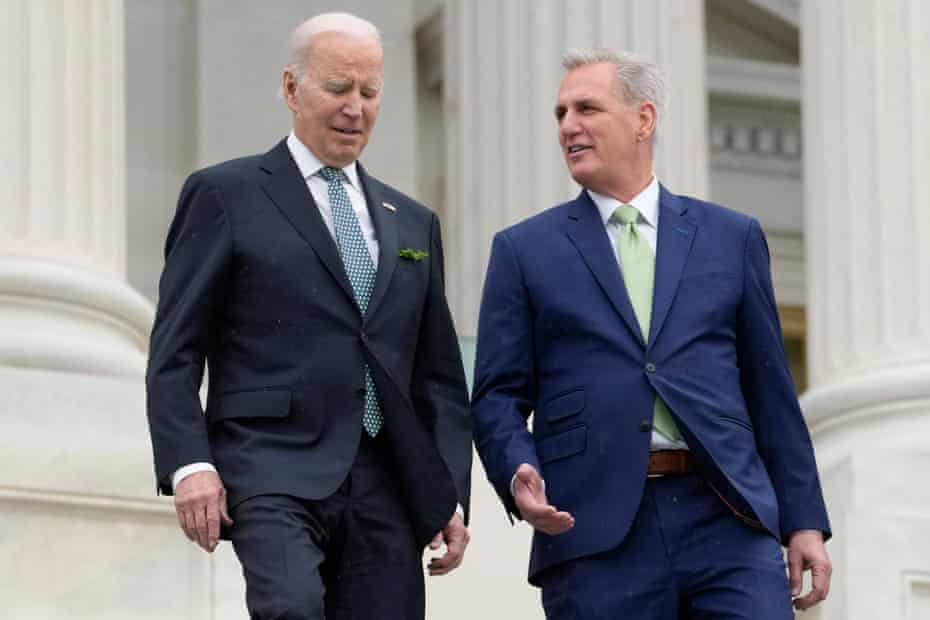The GOP has been using President Biden’s climate agenda as a bargaining chip in negotiations to raise the debt ceiling, even if it might end up hurting Republican voters, Entrepreneurng.com
The proposal, which is unlikely to pass through the Democrat-majority Senate, would significantly reduce federal spending, with the Limit, Save, Grow Act aiming to eliminate Biden’s student loan forgiveness plan and rolling back pandemic relief spending. Furthermore, the Act would repeal most of the new renewable energy tax incentives that have been codified in the Inflation Reduction Act.
The Inflation Reduction Act allocated $369 billion towards climate and renewable energy policies, which is the most extensive payment ever made towards climate policy in the history of the United States.
The GOP’s proposal would gut the majority of these provisions, putting clean energy jobs at risk. Republican voters in red districts, in particular, would be the most affected by these cuts.
A recent report by the environmental advocacy organization, Climate Power, states that Republican-held districts could potentially lose over 77,000 clean energy jobs. Despite this fact, all but six Senate Republicans have promised to oppose raising the debt ceiling without significant spending and budget reforms, supporting McCarthy’s position.
The GOP’s proposed cuts to clean energy incentives and climate policy could lead to the loss of clean energy jobs across 72 Republican-held districts. This outcome has been criticized as a “hostage situation” by RL Miller, president of the advocacy group Climate Hawks Vote and a member of the Democratic National Committee. This development could also result in McCarthy currying favor with the far-right wing of his party.
In March, the House passed the GOP’s proposal to speed up energy permitting, known as HR 1, which could expedite the federal approval of energy projects while limiting the states’ ability to reject them, while buttressing domestic fossil fuel production.
However, the plan includes provisions that Michelle Deatrick, head of the Democratic National Committee’s Council on the Environment and Climate Crisis, calls the “most egregious.” The plan intends to repeal a fee that the Inflation Reduction Act imposed on emissions of methane from oil and gas operations, a greenhouse gas that is 80 times more planet-warming than carbon dioxide in the short term.
If Congress fails to reach an agreement on the debt ceiling, the US could default on its debts, leading to catastrophic effects on the global financial system. Mark Paul, a professor of economics at Rutgers University, stated that “this would be economic apocalypse.”
In that scenario, the US could bring climate spending to a halt. Although studies show that delayed climate action will only increase costs in the future, the GOP insists on cutting climate spending, which is akin to “shooting yourself in the foot.”
Conclusion
Despite the looming fiscal catastrophe, Biden has the power to unilaterally end the debate by instructing the US Treasury to mint a single trillion-dollar coin or issue premium bonds.
However, Republicans are not allowing the government to function as intended, according to Professor Paul. Biden is set to meet with McCarthy on Tuesday to discuss the situation, but there is no indication that the two sides will come to an agreement any time soon, according to the guidian.com.











